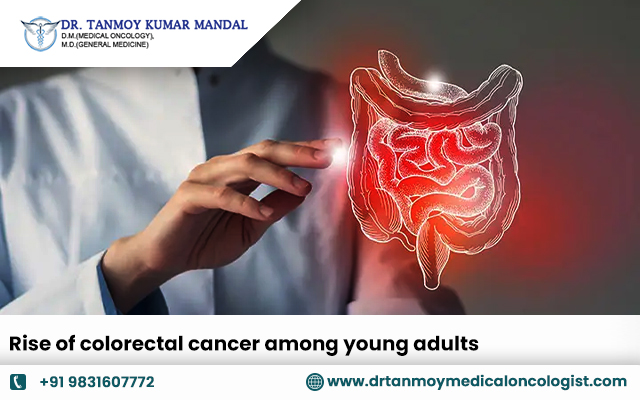Colorectal cancer, a type of cancer affecting the colon or rectum, has historically been associated with older age groups. However, recent years have seen a concerning trend—a noticeable rise in the incidence of colorectal cancer among young adults. This shift in demographic occurrence has raised significant concerns. Get to know the reasons for this unprecedented rise from the best colon cancer specialists in Kolkata.
Changing Trends and Statistics
According to studies and reports from various healthcare organizations, the rates of colorectal cancer in individuals under 50 have been steadily rising over the past few decades. Alarmingly, some research indicates that diagnoses in people as young as their 20s and 30s are becoming more prevalent.
Factors Contributing to the Rise
Understanding the factors contributing to this rise in colorectal cancer among young adults is crucial in addressing this concerning trend. Several potential factors have been identified:
- Sedentary Lifestyles and Poor Diet: Unhealthy lifestyle habits, including lack of physical activity and diets rich in processed foods, red meats, and low in fibre, are linked to an increased risk of colorectal cancer.
- Obesity Epidemic: The rising prevalence of obesity, particularly among younger populations, is associated with a higher risk of developing colorectal cancer.
- Environmental Factors: Exposure to certain environmental factors, including pollutants, industrial chemicals, and other toxins, may contribute to the development of colorectal cancer.
- Genetic Predisposition: While hereditary factors traditionally associated with colorectal cancer often manifest in older age groups, there are instances where genetic mutations can lead to early-onset colorectal cancer in younger individuals.
Challenges and Awareness
As per the best colon cancer doctor in Kolkata, diagnosing colorectal cancer in young adults poses challenges due to a lack of routine screening protocols for this age group. Most screening guidelines recommend regular screenings starting at age 50 for individuals with average risk. Consequently, symptoms in younger adults might be overlooked or attributed to other less serious conditions, delaying diagnosis and treatment.
Importance of Early Detection and Prevention
Early detection remains pivotal in effectively managing colorectal cancer. Recognizing symptoms such as persistent changes in bowel habits, rectal bleeding, abdominal pain, unexplained weight loss, or fatigue is crucial. Young adults experiencing these symptoms, especially those with a family history of colorectal cancer or related conditions, must seek prompt medical evaluation.
Moreover, making lifestyle modifications, like including a healthy diet, regular exercise, avoiding smoking, excessive consumption of alcohol and maintaining a healthy weight, can lower the risk of developing colorectal cancer significantly.
Conclusion
The rise of colon/rectal cancer among young adults is a concerning trend that demands increased attention, research, and awareness. Efforts to understand the contributing factors, enhance screening protocols for younger populations, and promote healthy lifestyles are essential in combating this alarming increase. Additionally, consulting the best colon cancer specialists can enable you to receive proper screening guidelines, making the way for early diagnosis and treatment.

